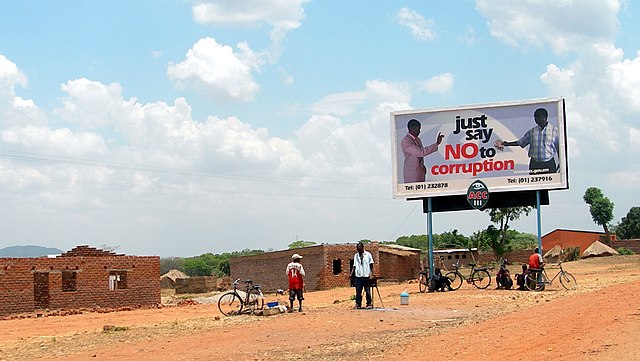Corruption poses significant threats to governments and institutions, undermining their effectiveness, eroding public trust, and impeding social and economic development. Here are some of the devastating effects of corruption on government and institutions:
Erosion of Public Trust:
- Corruption erodes the trust that citizens have in their government and public institutions. When people perceive that public officials are corrupt, it diminishes confidence in the fairness and transparency of government actions.

- Corruption erodes the trust that citizens have in their government and public institutions. When people perceive that public officials are corrupt, it diminishes confidence in the fairness and transparency of government actions.
Weakening of Rule of Law:
- Corruption undermines the rule of law by enabling selective enforcement and manipulation of legal processes. When bribery and favoritism prevail, the legal system becomes compromised, leading to a lack of justice and accountability.
Impaired Economic Development:
- Corruption hampers economic growth by diverting public resources away from essential services and infrastructure projects. Funds intended for development are often siphoned off, leading to suboptimal economic outcomes.
Income Inequality:
- Corrupt practices often contribute to income inequality. Wealthy individuals and businesses with connections to corrupt officials can gain unfair advantages, exacerbating social and economic disparities.
Reduced Foreign Investment:
- Countries with high levels of corruption may experience reduced foreign direct investment. Investors are often hesitant to engage in business environments where corruption is pervasive due to concerns about legal and operational risks.
Inefficient Public Services:
- Corruption can lead to the misallocation of resources and the provision of substandard public services. Bureaucratic inefficiency and a focus on personal gain rather than public welfare result in poorly managed and poorly funded services.
Political Instability:
- Widespread corruption can contribute to political instability and social unrest. Citizens frustrated by systemic corruption may engage in protests and demonstrations, challenging the legitimacy of the government.
Undermining Democracy:
- Corruption weakens democratic institutions by compromising electoral processes and fostering a culture of impunity. Elected officials may engage in corrupt practices to secure power, undermining the principles of democracy.
Security Risks:
- Corruption can contribute to security risks, particularly when it involves law enforcement agencies and the military. The diversion of resources meant for national security can weaken a country’s ability to address internal and external threats.
Environmental Degradation:
- Corruption in environmental governance can lead to illegal logging, poaching, and pollution. Natural resources may be exploited without regard for sustainable practices, contributing to ecological degradation.
Healthcare Crisis:
- Corruption in healthcare systems can lead to the mismanagement of funds and the provision of substandard medical services. This has direct implications for public health, with potentially devastating consequences during crises such as pandemics.
Diminished Global Reputation:
- Nations with high levels of corruption often face reputational damage on the global stage. This can affect diplomatic relations, trade agreements, and international cooperation efforts.
Addressing corruption requires a comprehensive and sustained effort, involving legal reforms, increased transparency, accountability mechanisms, and a commitment to ethical governance. International cooperation and the involvement of civil society are also crucial in the fight against corruption. Efforts to curb corruption contribute not only to the health and resilience of individual governments and institutions but also to the overall well-being and prosperity of societies at large.











